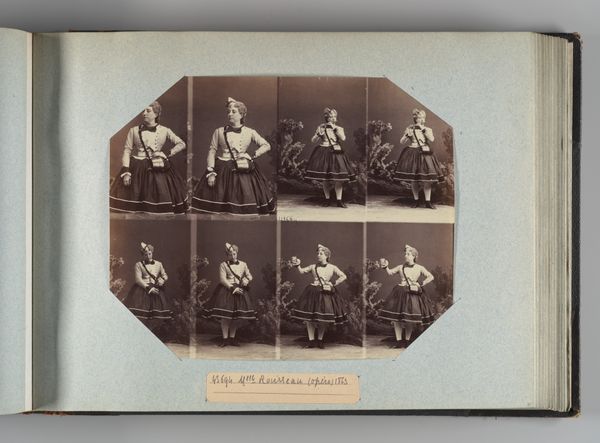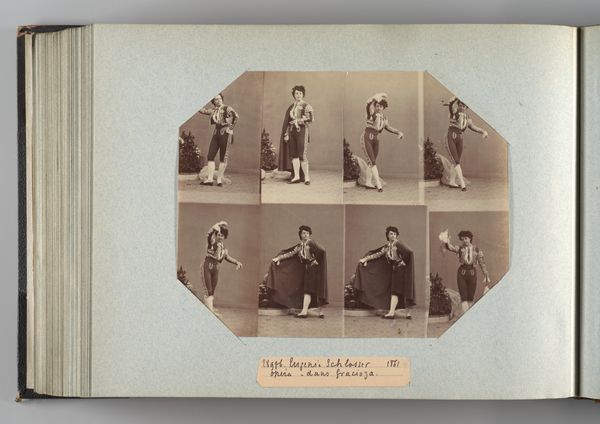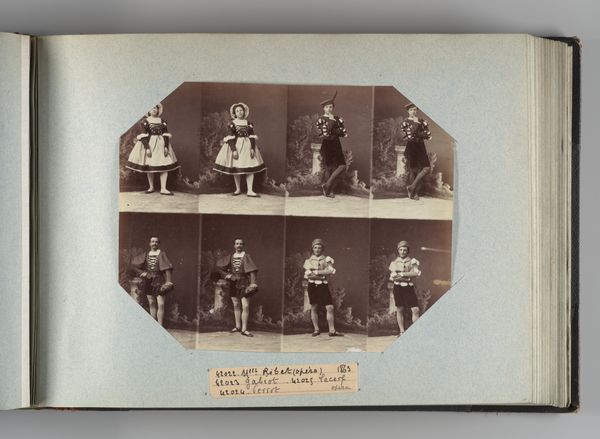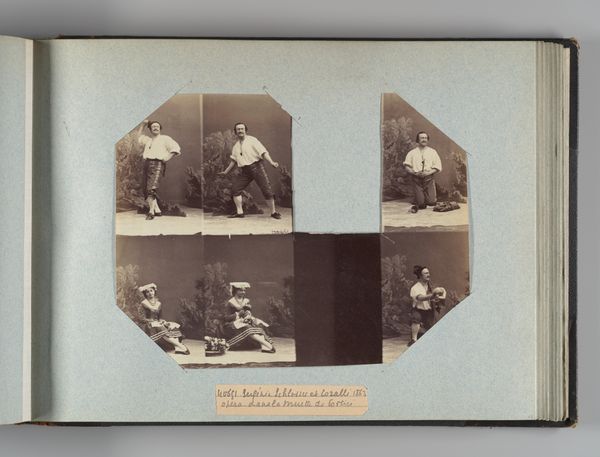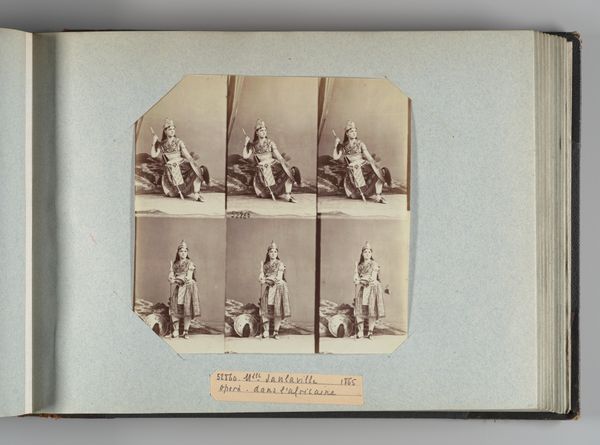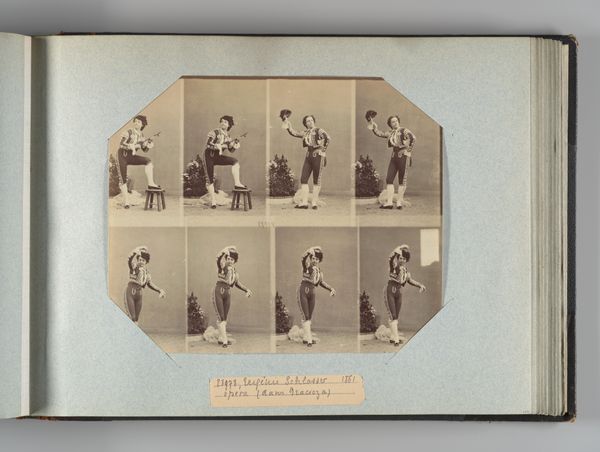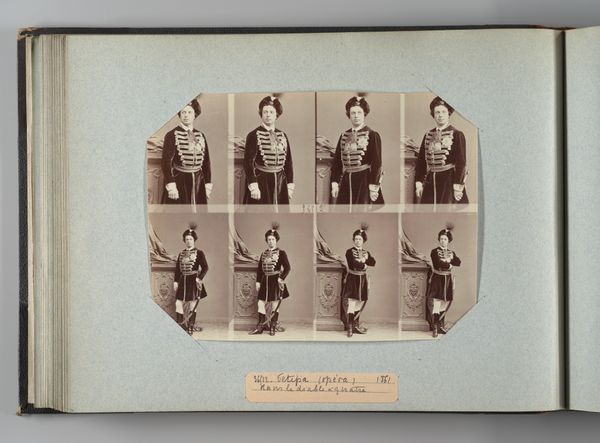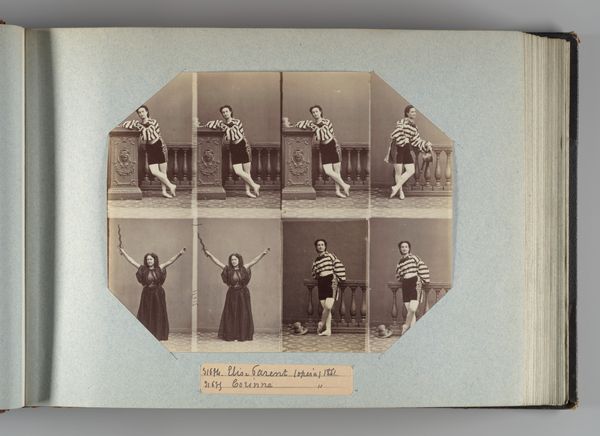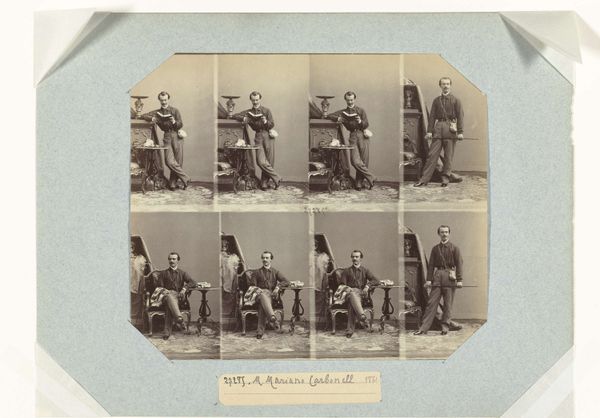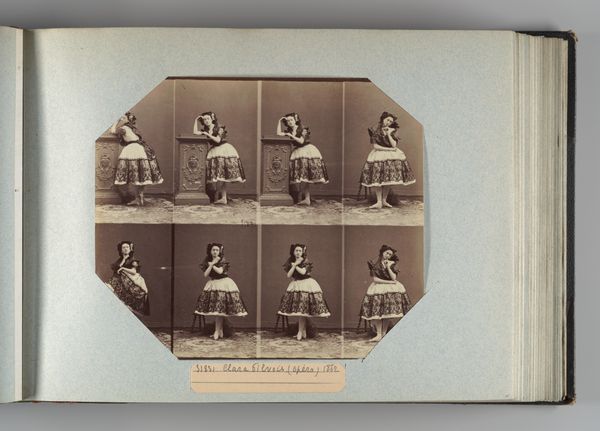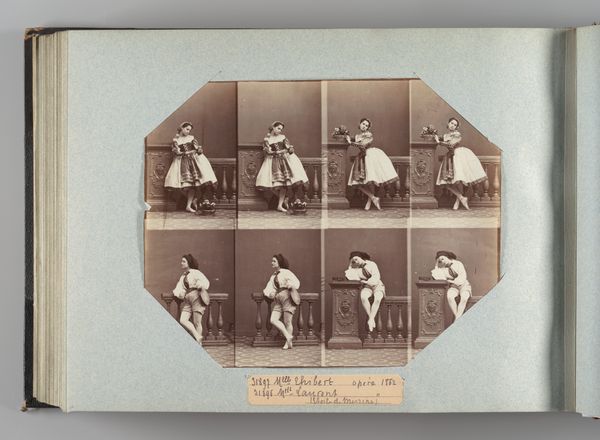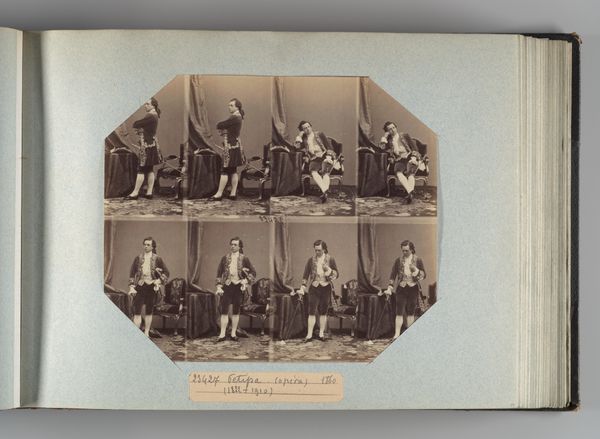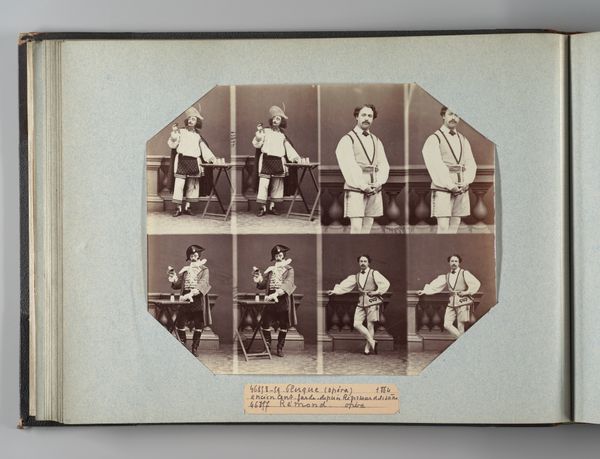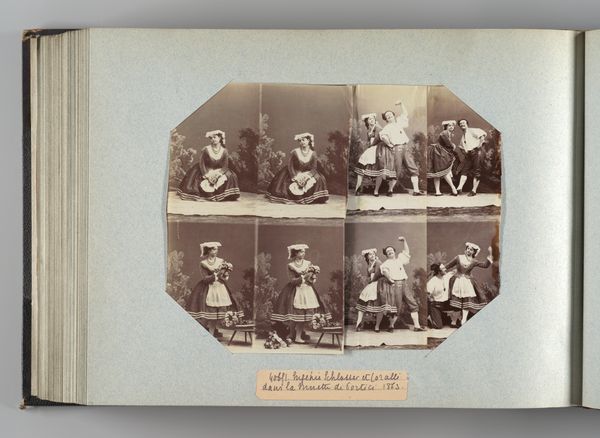
daguerreotype, photography
#
portrait
#
16_19th-century
#
daguerreotype
#
photography
Dimensions: Image: 7 3/8 × 9 1/4 in. (18.8 × 23.5 cm) Album page: 10 3/8 × 13 3/4 in. (26.3 × 35 cm)
Copyright: Public Domain
This photographic album page featuring Rémond and Petipa was created by André-Adolphe-Eugène Disdéri. The sepia-toned images are arranged in a grid, creating a formal structure that emphasizes repetition and variation. The composition draws attention to the performative nature of portraiture. Notice how Disdéri uses the carte-de-visite format to explore the multiple facets of identity. The formal poses and theatrical costumes suggest a constructed persona. This undermines the notion of a singular, authentic self. The structure invites us to consider the semiotics of dress and gesture. How do these visual signs communicate social status, profession, and character? Further, this early form of photographic reproduction democratized image-making, challenging traditional hierarchies of representation. The reproducibility inherent in photography destabilizes the aura of uniqueness traditionally associated with art objects. This raises questions about originality, authorship, and the changing role of the artist in an age of mechanical reproduction.
Comments
No comments
Be the first to comment and join the conversation on the ultimate creative platform.
